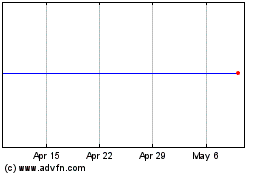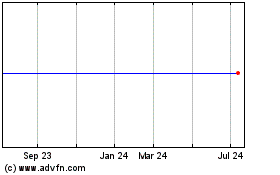Whole Foods Shifts to Slower-Growing Chickens
March 17 2016 - 4:00PM
Dow Jones News
Whole Foods Market Inc. is looking to slow-grow its
chickens.
The natural and organic foods retailer said it will replace the
industry-standard chickens bred to rapidly pack on pounds with
slower-growing varieties that Whole Foods believes will enjoy
better lives and yield better-tasting meat.
The move, which Whole Foods expects to complete by 2024, will
involve repopulating chicken farms that supply its stores with
breeds like the Red Ranger and Naked Neck, which generally grow to
marketable size about 23% more slowly than conventional varieties
favored by top meatpackers.
"It's better for the animal but also for the quality of the
product," Theo Weening, global meat buyer for Whole Foods, said
Thursday. He said the chain may promote the pokier poultry breeds
in store aisles and packaging.
The retailer's embrace of slower-growing chickens broadens the
debate over methods farmers and meat companies use to raise the
billions of animals that supply meatpackers, retailers and
restaurants, which have come under pressure from consumer groups
and public health officials.
Restaurants including McDonald's Corp. and Subway have outlined
plans to scale back antibiotics fed to animals that provide meat to
the chains, while General Mills Inc. and Nestlé SA have pledged to
buy more cage-free eggs.
Meatpackers Cargill Inc. and Smithfield Foods Inc. have moved to
improve housing for pregnant pigs.
Geneticists at chicken-breeding divisions of Tyson Foods Inc.,
Groupe Grimaud and Aviagen Inc. for decades have focused on
breeding more-efficient chickens that gain weight more quickly
while consuming less feed and water, helping make each bird more
profitable.
Today, farmers can raise a 5.3-pound chicken in 35 days using 8
pounds of feed, compared with 30 years ago, when it took 7 pounds
of feed to raise a 3-pound bird over the same span of time.
While meat producers tout fast-growing chickens as more
sustainable, animal-rights groups argue that the intensive genetic
selection has created top-heavy chickens with overlarge breasts
that have trouble walking and are prone to heart problems.
Though breeders have worked to produce hardier birds, groups
like the Global Animal Partnership say the huge chickens eventually
can't do things that come naturally to chickens, like perch and
scamper. The group said Thursday it will make slower-growing
chicken breeds the requirement for companies like Whole Foods that
participate in its ratings system for animal-raising standards.
Anne Malleau, the Global Animal Partnership's executive
director, said chickens in the program are likely to grow to market
weight in 56 to 62 days, versus an average 42 days for similarly
sized, faster-growing birds.
Slower-growing varieties already represent about 5% to 10% of
Whole Foods' overall chicken supply, which the company sells in its
delis and meat cases and processes into products like stock for
soup, chicken salad and pet food. Mr. Weening said that any cost
increase arising from the shift would be "minimal."
Write to Jacob Bunge at jacob.bunge@wsj.com
(END) Dow Jones Newswires
March 17, 2016 15:45 ET (19:45 GMT)
Copyright (c) 2016 Dow Jones & Company, Inc.
Whole Foods Market, Inc. (NASDAQ:WFM)
Historical Stock Chart
From Mar 2024 to Apr 2024

Whole Foods Market, Inc. (NASDAQ:WFM)
Historical Stock Chart
From Apr 2023 to Apr 2024
